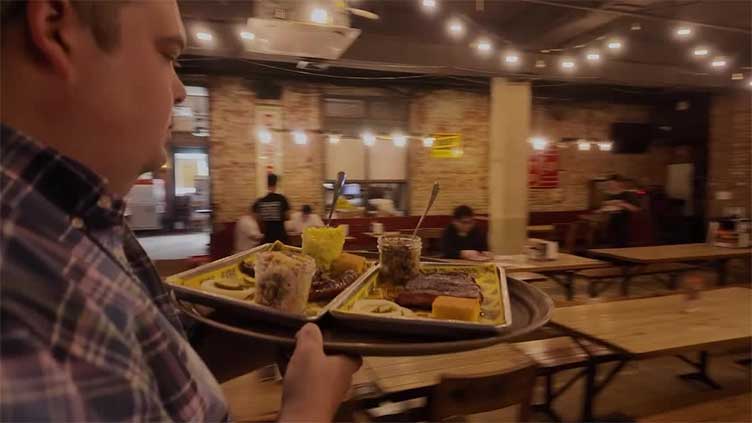US beef off the menu as the trade war hits Beijing's American-style restaurants

Business
US beef is one of thousands of casualties in trade war between the world's largest trading partners
BEIJING (Reuters) – At Home Plate BBQ, an American-style restaurant in Beijing, staff are reprinting menus. The US-China trade war means American beef – once the star ingredient – will soon be off the table.
Home Plate's beef, previously sourced entirely from the US, is increasingly Australian. The restaurant uses about 7 to 8 tonnes of brisket each month, and when the US beef in the freezers is used up in a few weeks, the southern-style BBQ restaurant will only serve meat from Australia.
US beef is one of thousands of casualties in the trade war between the world's largest trading partners. Even before the battle began, American beef was expensive. Beijing's 125% retaliatory tariffs, on top of the existing 22%, made it unaffordable.
While the $125 million a month in US beef exports to China is a sliver of the mammoth goods trade, beef's disappearance from menus in Beijing is a glimpse of the fate to come for thousands of goods on both sides of the Pacific.
"Once we deplete our stocks, we'll be switching fully over to Australian M5 ... We still think that it's the same taste and quality and flavour, but we've had to switch just due to market pressures and the tariffs," said Home Plate's operations director, Charles de Pellette.
US beef was getting expensive before the trade war began in part because of shortages caused by years of dry weather that shrank herds to their smallest since the 1950s. Those higher prices were hard to swallow in China where a weak economy has made consumers especially price conscious.
US brisket prices rose by nearly 50% between last May and March before skyrocketing further after the tariffs - leaving supplies depleted or costs almost double what they were a year earlier.
Australia is looking to fill the gap, including with brisket that's 40% cheaper. And at Home Plate they've had success. Come May, diners will be tucking into Australian beef ribs, brisket, and sausages smoked long and slow in the traditions of Texas and the American South.


